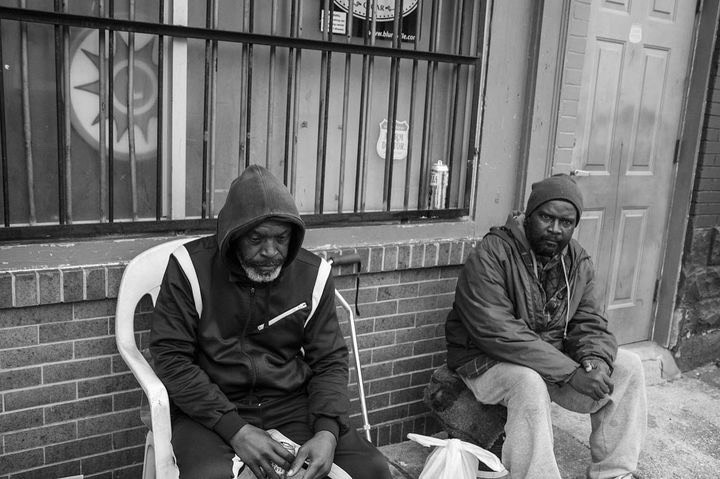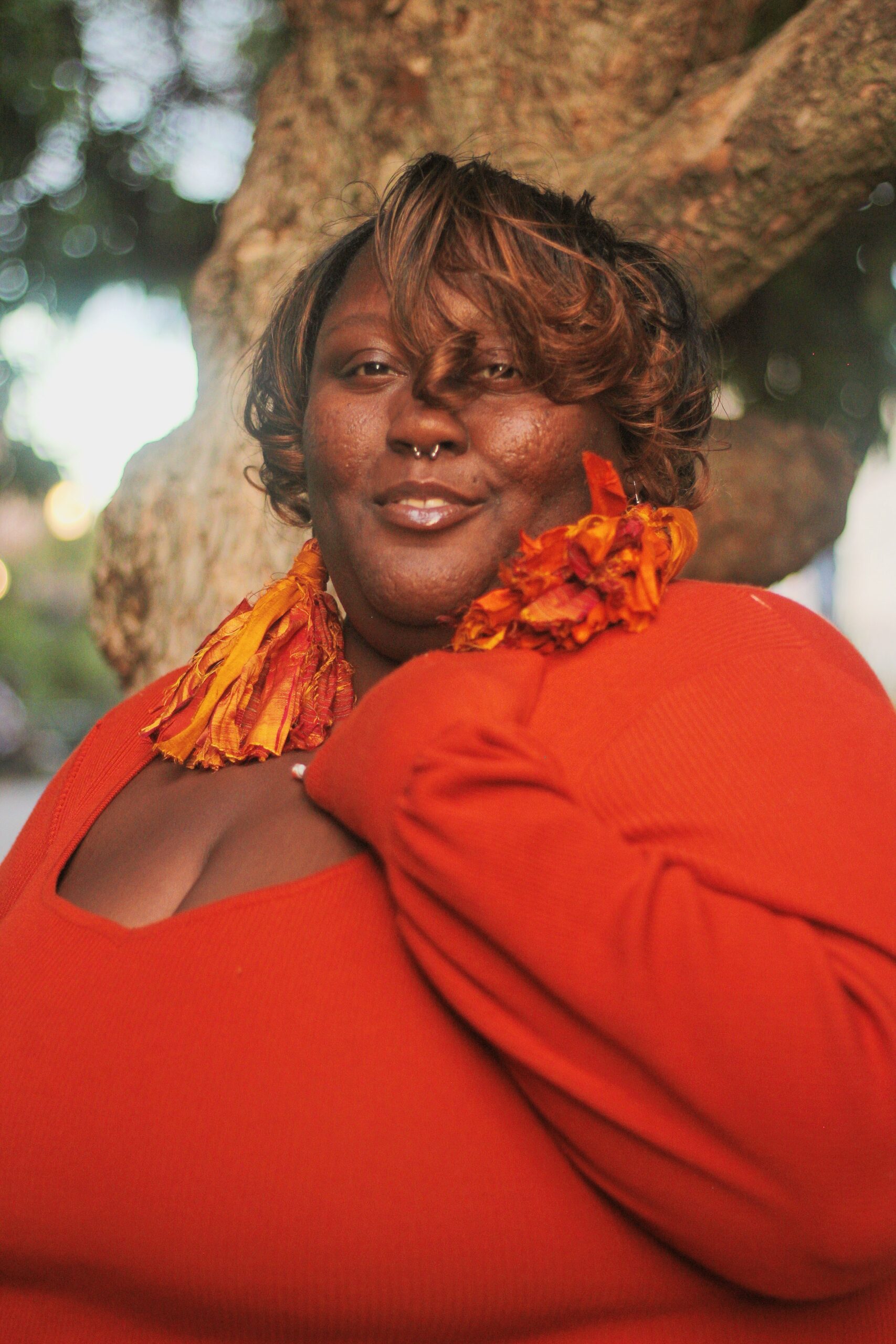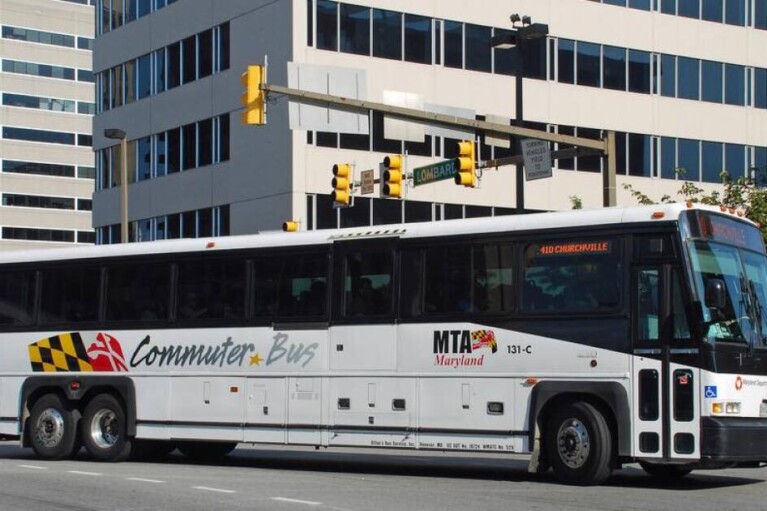Baltimore’s ‘Old Head’ culture: Understanding the different levels of respect in Baltimore’s Vernacular English

Columnist Alanah Nichole Davis encourages readers to delve into the rich cultural and linguistic diversity of Baltimore.
Baltimore, a city nestled in the Northeast megalopolis (but not the DMV) and defined by its four-one-oh, four-four-three, and six-six-seven area codes, holds a special place in the hearts of residents who have had or are having the privilege to come of age here. Though not always spangled, the city’s grit and charm, combined with its upscale crab shacks, row homes, and the wide expanse of the inner harbor, make it a beloved home.
For many who grew up here, memories of laughing on the brick promenade by the harbor, sampling free treats from long-gone retailers like The Fudgery, and stretching our twenty-dollar bill budget for MTA rides and freak parties (with which we had no business) are etched in our minds forever.
In Baltimore, grief has a way of seeping into your skin and finding the center of your linguistics, giving rise to words like “Old Head.” While the term’s meaning is not exclusive to Baltimore and is rooted in African-American culture and Vernacular English, it holds a special significance in this city.
The smiles of friends lost in varied ways along the way also linger in our memories and give us a special license to the use of the word. (Varied as in maybe they passed away or maybe y’all just don’t speak anymore.)
Ask any Black person from any region about an “Old Head,” and they will likely know exactly what you mean. But in Baltimore, it could mean you’ve seen a lot, learned a lot, or have a responsibility to teach. Being an Old Head could also mean that you’ve lost a lot or that you’re in a position where you’ve got too much to lose right now. It could also simply mean that you’re not going out in the city that night.
In Baltimore’s golden age of clubs, cultural fixtures like Hammerjacks, Paradox, or Silver Shadows drew crowds from all over the city. But for those who had reached a certain level of maturity, the allure of crowded rooms and flashing lights had faded. Even in their twenties, someone might have referred to themselves as an “Old Head” when declining an invitation to a club. This term wasn’t necessarily about age, but more a way to express a lack of interest in being in a room full of people with various and sometimes chaotic or dangerous energies, strobe lights, and too much alcohol. Whether due to past trauma or sheer boredom from having gone to clubs since before being of legal age, the sentiment was clear: been there, done that. I even had some OGs who could slide me past the ID check at 5 Seasons on Guilford or other spots. If you’re younger, then for this example you could use Sangria Patio Bar or Noir Restaurant & Lounge, and if you’re older it would’ve been a call on the house phone and an ask to come out to Odell’s Nightclub where you’d know if you belonged. (This is a callback to the slogan for Odell’s, a disco club that now stands as a community center for art along the North Avenue corridor.)
You might be wondering what the difference between an Old Head and an OG is. While there might not be an age range or limitation on the years you have to have lived to call yourself an Old Head in Baltimore, there is a spectrum for levels of respect.
I’ll give an example: When I was a kid in Baltimore there would be cats on the back of the bus who couldn’t have been older than a hard-lived thirty-eight years of age spitting game to us youngins about not ever touching drugs, pulling our pants up (because that was a thing in the early-aughts) or some other generalized advice based on mistakes they may have made in life along the way. Some of the more disrespectful youth in Charm City would cuss the Old Heads out. Screaming back at them about how they didn’t know anything about life. Me? I had that kind of home training from the women in my family that wouldn’t quite allow for public disrespect of complete strangers. But to each their own, everyone has the right to their own opinions and actions.
Most of what you’d hear on the back of a bus from Old Heads was unreliable, but sometimes you’d get an earful from an actual OG. An OG according to Dictionary.com is a term for someone who’s incredibly exceptional, authentic, or old-school. Old Head status is something that you can absolutely self-proclaim, but OG status is something that more has to be bestowed. An Old Head could be a drug addict who’s still nodding outside of the old Lexington Market giving you advice or it could be your best friend’s aunt while she makes y’all a plate of delectable baby shower meatballs at a repass, sage advice from an actual OG. Someone you respect. There’s not an age range on that either: being an OG here in what the Kurt Schmoke administration would’ve called “The City that Reads”. OG is just a sign of respect or even a term of endearment.
And that a Baltimorean will do, read you for filth. “Read” is another word at the intersections of African-American Vernacular English and queerness. A read is a tool of especially African American and queer culture where you apply discernment in situations or feel things out. It’s not what Schmoke meant in the slogan that was painted on the city’s benches in the ‘80s but it is what we’ve always done in Baltimore. It’s how you determine whose advice you should take — whether it be an Old Head or an OG. A read is also what you’d use to determine whose house you should visit whether it be in East Baltimore (Over East) or in West Baltimore (Over West).
In a Baltimore summer, if you listen closely, you can still hear the echoes of laughter from friends who may have departed from our lives, whether by death or by growing apart. Even those who are no longer with us can leave an impression, like in a wise baby who seems to have lived before. We Black folks love saying, “That baby been here before.” Sometimes I feel like an Old Head when I see young girls and want to share the lessons I’ve learned, even if they might not appreciate it at the moment.
As for friends, we may have lost touch with, we can still hold onto fond memories of them when we revisit our old stomping grounds. Even though things may have changed, the memories remain a constant reminder of the good times we shared.
In Baltimore we’re an urban center: a mishmash of cultures, both old friends and new, nestled on the Chesapeake Bay surrounded by beautiful humans who sometimes yell at each other on the bus or decline club invitations by saying: My fault OG, I’m not going to make it to the spot tonight. You know I’m an Old Head.
Editor’s Note: This column was update to correctly reflect that Mayor Kurt Schmoke coined the term “The City that Reads” for Baltimore.




 Creative Commons Attribution
Creative Commons Attribution